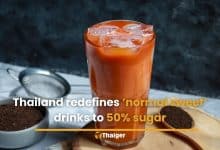Decriminalisation of cannabis in Thailand: Can I get high or not?

As “Ganja Day” approaches on June 9, Thailand’s Ministry of Health wants to be clear about one thing: Smoking cannabis recreationally in public is a criminal offence punishable by three months imprisonment and a fine of up to 25,000 baht. However, smoking cannabis in private is a different story.
Cannabis smoke has been written into new legislation as a “public nuisance,” allowing anyone annoyed by the smell of cannabis smoke to report the culprit, who can go to prison for up to 3 months if found guilty.
On June 9, all parts of cannabis and hemp plants – including leaves, barks, body, fibres, branches, roots, seeds and inflorescences – will be delisted as a Category 5 narcotic, essentially decriminalising possession of marijuana in Thailand. Extracts containing more than 0.2% THC, or tetrahydrocannabinol, are still classified as a Category 5 narcotic.
So, possessing and smoking cannabis flowers will be completely legal in Thailand from June 9, so long as the smoke does not disturb anyone. In other words, getting high in the safety of your own home or in a remote location is fine, but lighting up a joint in Siam Square for example, is illegal and will get you into trouble with the law.
People in Thailand will legally be able to grow as many cannabis and hemp plants as they like at home without seeking permission from June 9. The only requirement will be to register through the “Plook Ganja” mobile application, which is not yet available on the app store. It is not yet clear whether the application will be limited to Thai nationals, or if foreigners residing in the kingdom will be allowed to grow cannabis too.
Public Health Minister Anutin Charnvirakul previously promised to give away one million cannabis plants to the population of Thailand. We don’t know whether these plants will be male cannabis – or “hemp” plants, which do not grow THC-rich flowers, or female plants, which do. THC is the psychoactive component of marijuana… AKA the part which gets you high. Hemp plants contain only CBD – or cannabidiol – a component which has medicinal properties but no psychoactive effects.
Thailand’s Ministry of Health still discourages recreational use of cannabis, and hope that cannabis growers will use the plant for medicinal purposes, and not to get high.
Cannabis is a high-profit cash-crop, and Thailand’s decriminalisation of the plant is designed to develop the country’s medical tourism industry and benefit the economy, not to encourage recreational cannabis smoking. The Thai government is working on formalising a “Cannabis-Hemp Act” which will provide all details needed about growing and commercialising the crop.
So from June 9, getting high in Thailand (in private) will be completely legal, as long as no one reports the smoker for causing “public nuisance.”
Latest Thailand News
Follow The Thaiger on Google News:


























